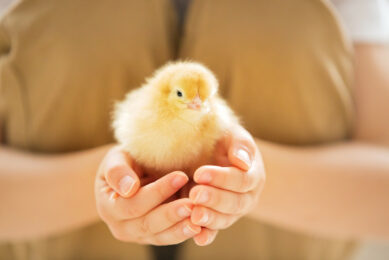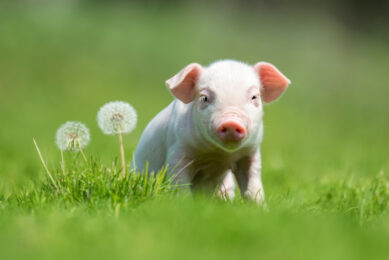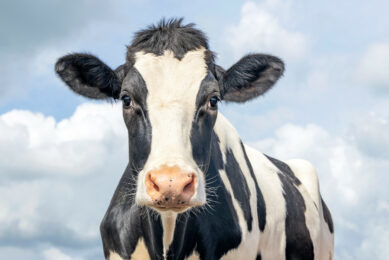Yeast cell wall, not just mycotoxin binder for poultry
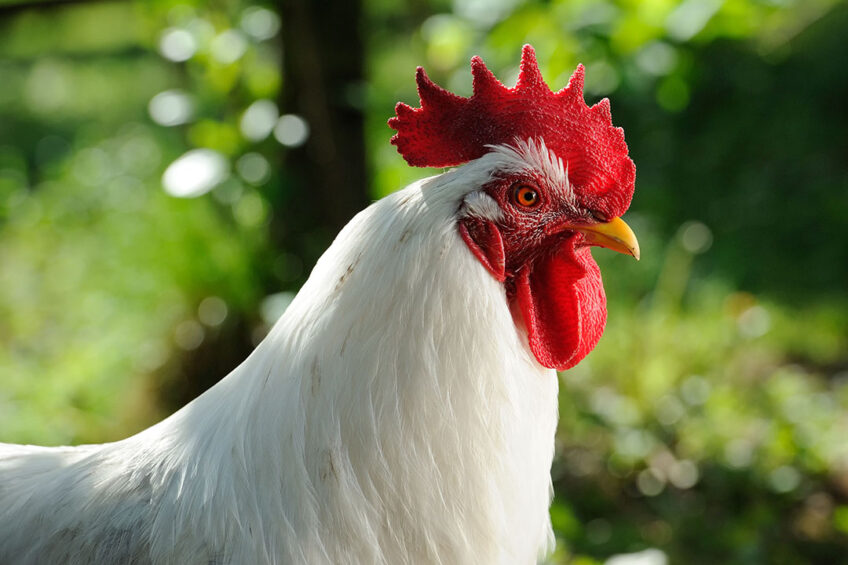
The Ministry of Agriculture and Rural Affairs of China has banned all in-feed use of antibiotics from 2020, this has stimulated researchers and feed manufacturers to look for safer alternatives.
A variety of microbial species such as Bacillus, Lactobacillus, and Saccharomyces yeast are extensively used as probiotics in poultry production. Extracts derived from yeast cell wall have been demonstrated to be effective in increasing growth performance and immune responses in chickens.
Yeast cell wall consists of β-glucan, mannan, protein, lipid, and chitin, among which β-glucan accounts for about 29% to 64%, and 31% mannan, 13% protein, 9% lipid, 1–2% chitin. The main active components of yeast cell wall are β-glucan and mannan, early studies discovered that β-glucan and mannan from yeast cell wall can act on macrophages to stimulate the body’s non-specific immunity. β-Glucan is a natural immune activator that can non-specifically and specifically enhance the immune system with PAMPs (pathogen-associated molecular patterns).
Functions of yeast cell wall for poultry
Adsorption of pathogenic bacteria, optimise the intestinal environment
The structure of mannooligosaccharides and the pathogen binding receptors are similar, which can competitively bind to the pathogen and prevent the pathogen adhesion. It can also be used as intestinal probiotics to promote the proliferation of beneficial bacteria in the hindgut and give full play to the barrier, nutrition, and immune functions of probiotics.
Improve immune function, prevent disease, and reduce antibiotic usage
β-glucan activates macrophages through LECTIN and induces cellular and humoral immune responses in the body, thus enhancing non-specific immunity and immune function.
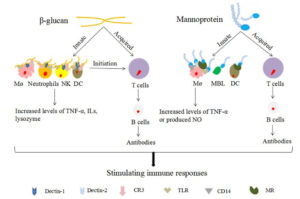
Specific absorption of mycotoxin, reduce toxin harm
The special double helix spatial structure of yeast cell wall can provide multiple toxin binding sites to adsorb macromolecular toxins such as zearalenone and form a stable polysaccharide-toxin complex.
Applications for broiler
Enhance immunity, improve disease resistance
AA broilers fed diets supplemented with 1, 2 and 3kg/t yeast cell wall (YeaMOS, provided by Angel Yeast Co. LTD) significantly increased the serum level of Newcastle disease antibody.
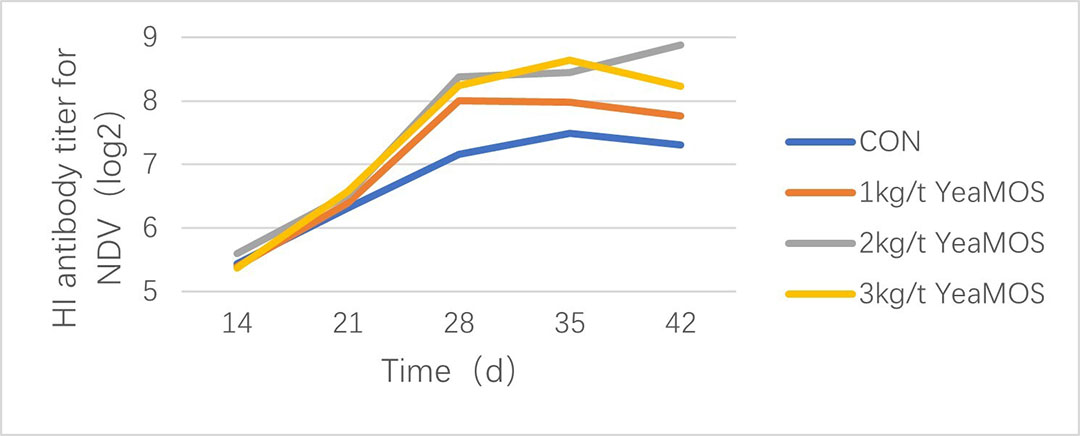
Partly replace AGPs
Cobb broilers were fed diets supplemented with 0.5, 1, and 2kg/t yeast cell wall (YeaMOS, provided by Angel Yeast Co. LTD) for 42d WELLHOPE, Liaoning, China). Compared with the control group, the 1kg/t supplemental group increased the final body weight by 9.45%, and decreased the F/G ratio by 1.23%. Compared with the antibiotic group, the final body weight increased by 5.24%, and the F/G ratio decreased by 0.62%.
Improve the growth performance for broiler
A total of 93000 one-day-old Cobb broilers were randomly selected and randomly divided into 2 groups (Table 1). The experiment group was supplemented with 1kg/t Yeast cell wall (YeaMOS, provided by Angel Yeast Co. LTD) for about 38 days. The performance of broilers in the experimental group are better than those in the control group. The average slaughter weight of was increased about 0.018kg; the average daily gain was increased 0.54g; the F/G was decreased 0.031; the survival rate was increased 0.256%; the final European index was increased 11.81, with an increase of 3.0%.
Applications for layer hens
Improve production performance of laying hens
The average egg weight of 17-week-old Hy-line brown commercial laying hens was increased by 4.01% and 3.44% when supplement with 0.5 and 1kg/t yeast cell wall (YeaMOS, provided by Angel Yeast Co. LTD) in the diet, respectively. The feed to egg ratio decreased by 6.17% and 3.08%, respectively; The broken rate was reduced by 73.21% and 80.37%.
Improve egg quality
A total of 71000 layer-hens about 27~29week-old has been separated into two groups (Table 2). The experiment group was supplemented with 1kg/t Yeast cell wall (YeaMOS, provided by Angel Yeast Co. LTD) for 24 days. And it is significantly increased selective grade and C-1 grade egg, and reduce small grade egg (Ukraine, 2018).
Summary
Yeast cell wall, as a bioactive polysaccharide from yeast, has been widely used as an adsorbent for mycotoxin. It can also improve intestinal health, enhance specific and non-specific immunity in poultry breeding, and ultimately improve production performance and benefits.
References are available on request



